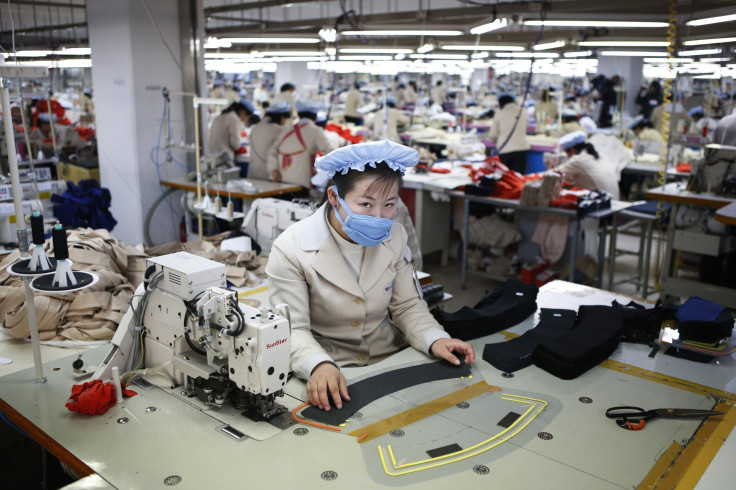North Korean Women Making More Money Than Men In Government Through Gray Market

In North Korea, most of the high-power jobs in the government and military belong to men. However, a new study shows that while men maintain most of the country’s high-ranking jobs, women are often the breadwinners.
According to a study published by South Korea’s government-run Korea Institute for National Unification, women are responsible for more than 70 percent of household income in the insular country. In North Korea’s male-dominated society, women are reportedly able to find jobs as traders at unofficial markets, which have began to grow in recent years.
Women in North Korea can earn monthly incomes of 50,000 to 150,000 North Korean won, roughly $6 to $18, working as traders, according to a survey of 60 female defectors conducted by the Citizens’ Alliance for North Korea Human Rights. Government jobs, by comparison, pay anywhere from 2,000 to 6,000 won per month, according to North Korea news site Daily NK.
According to the report, most men remain in these powerful yet low-paying jobs as civil servants or serving in the military because of national duty. “We North Koreans say men are fighting on the socialism front but women are fighting in the battle of life,” a 26-year-old defector with the last name Jung said, according to Reuters. Jung fled the North for South Korea in 2012 but still regularly sends money home to support his mother’s business selling alcohol and raising pigs. “There are no state provisions and my father has an unpaid job, which he must do almost as duty.”
“North Korea’s living standards depend on women’s business abilities and skills, not on the state,” Kim Eun-ji, director of the Center for Korean Women and Politics, told Reuters. “Women are replacing the role of the state via the market economy. Now men are even looking for potential wives in marketplaces.”
North Korea's growing black market has also been a lucrative -- but higher-risk --place to earn money. There is a growing demand for banned goods like foreign movies, televisions shows, music and other technology from across the Chinese or South Korean border. In an op-ed written by North Korean defector Yeon-mi Park in the Washington Post, she calls North Korea's current young generation the "Jangmadang," or "Black Market Generation."
"The private market has provided more than food and clothing -- it has also provided TVs, bootleg South Korean movies, and K-pop videos, USBs and DVDs."
© Copyright IBTimes 2024. All rights reserved.












